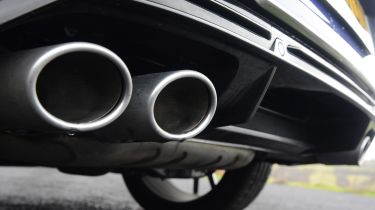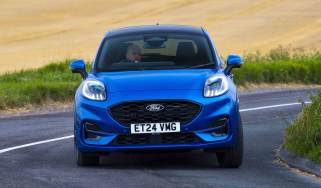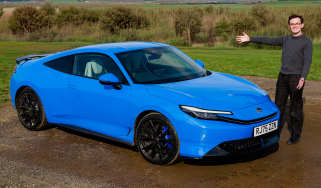Labour reverses 2035 ICE ban: no new petrol or diesel cars to be sold after 2030
The Transport Secretary says the Government will launch a consultation with the industry to consider “what steps can be taken to support domestic manufacturing”

Six months after reaching power, Keir Starmer’s Labour government has decided to reverse the previous administration’s decision to extend the ban on the sale of petrol and diesel cars until 2035. This means no new ICE cars will be allowed to be sold in the UK after 2030 – a move that critics have described as “a step too far”.
Heidi Alexander, who recently replaced Louise Haigh as Transport Secretary, said in a statement that “the need to transition away from a reliance on fossil fuels has never been clearer, and the transition to zero-emission vehicles will play a critical role in quickly reducing carbon emissions and improving our energy security.”
Wind the clock back to September 2023, and the then-Prime Minister, Rishi Sunak, chose to push back the ban on the sale of new petrol and diesel cars to avoid households being faced with what he described as “unacceptable costs”. Such a decision caused ructions within the car industry and has long been something that Labour said it would reverse.
Now, the government has launched a consultation to “consider stakeholders’ preferences on technology choices and the types of vehicles permitted between 2030 and 2035 alongside ZEVs”.
Up until this point, the general consensus has been that the only petrol or diesel-powered vehicles that were expected to be allowed past the 2030 deadline were those with what were described as having a “significant electric range” – like plug-in hybrids. However, the government's decision to launch a consultation clouds things even further.
The owner of Vauxhall, Stellantis, has long been critical of the UK’s approach to the EV transition. However, the giant told Auto Express that it “welcomes” the government’s latest move and that it’s planning to take part in the aforementioned consultation.
When asked why members of the public weren’t being consulted, the Department for Transport advised Auto Express that while the industry itself is the main focus of the investigation, motorists are also encouraged to express their views and concerns in order to guide the ultimate outcome.
Meanwhile, this is the second automotive-related consultation the government has launched in recent months; late last year, Labour announced it would launch talks with the industry concerning controversial ZEV mandates, which require manufacturers to ensure a certain percentage of new-car sales are of electric cars, lest they receive a hefty fine.
The ZEV mandate has already taken its toll on UK manufacturing, with Stellantis pledging to close its historic Luton plant and Ford deciding to cut as many as 800 jobs over the next three years. A Ford spokesperson told Auto Express that the firm “welcome[s] clarity from the government on the 2030 ICE vehicle deadline”, but warned that the EV market “urgently needs support and stimulation to meet these ambitious goals”.
The Transport Secretary repeated the government’s urge to “grasp the opportunities of this ambitious and transformative shift”, stating that this latest consultation is designed to understand “what steps can be taken to support domestic manufacturing and cement the UK’s position as one of the major European markets for ZEVs.”
Regardless, the Conservative Shadow Transport Secretary, Gareth Bacon, described the changes as “a step too far”. Bacon told Auto Express that “Labour just don't get how much people need their cars, and want a choice in what they drive. [The government] should ditch this disastrous policy."
Do you agree that reinstating the 2030 ban on ICE vehicles is the right move? Let us know in the comments section below...




